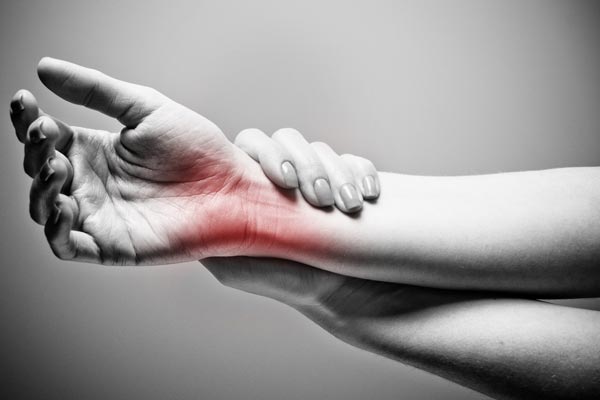Fibromyalgia and the conditions that are associated with it
What is fibromyalgia?
Fibromyalgia is a kind of disorder which is characterized when a person has musculoskeletal pain with some other symptoms including mood swings, memory loss, fatigue and lethargy, and insomnia.
Fibromyalgia is the second most common condition which affects our bones and muscles. This disease is often misdiagnosed and even misunderstood.
The most common symptom of this disease is fatigue, muscle pain, and joint pain.
Although, there is no definite cure of fibromyalgia, a combination of medicines, exercising, a healthy way to manage stress, and good healthy eating habits may eradicate these symptoms assuring you can lead a normal life.
The real cause of fibromyalgia are not exactly known but doctors suggest that it is a problem with how the brain and the spinal cord process pain signals from our nerves.
Fibromyalgia is common among women, or if you have another very painful disease such as an infection or arthritis.
Fibromyalgia is also common among those who have mood disorders for instance anxiety problems and depression.
If people in your family have fibromyalgia you are more likely to get this disease and it is also common among people who rarely exercise or were emotionally abused.
What are the symptoms of fibromyalgia?
The simplest definition of the symptoms of fibromyalgia is that you ache all over and have immense pain in each and every part of your body.
Some of the most common symptoms include:
- You have severe muscle pain, burning, itchiness, twitching or tightness.
- You feel weakness or lethargic in performing routine work.
- You have insomnia, or you cannot sleep well.
- You feel nervous, depressed, stressed or worried
- You have trouble concentrating and you forget stuff called as fibro fog
- You have tender points
What are the conditions associated with fibromyalgia?
Fibromyalgia is characterized by having severe pain and tender points in the body.
People who have fibromyalgia are most likely to experience some other conditions along with it as well.
A person having fibromyalgia might experience some other concerns as well.
Migraines
A large number of people who have fibromyalgia also experience migraines and other headaches.
Sometimes the headaches and migraine attacks might be extremely severe and they may persist for hours.
A person may feel extremely tired and lethargic when experiencing this kind of pain.
Doctors might suggest antidepressants which might relieve the headaches and migraines.
Autoimmune diseases
Doctors suggest that about a quarter of people who experience fibromyalgia may experience some other diseases as well such as inflammatory autoimmune diseases, rheumatoid arthritis, lupus, Sjogren’s syndrome, and ankylosing spondylitis.
The exact reason for the connection of these diseases with fibromyalgia is not yet known.
Although fibromyalgia is not an inflammatory disease, researchers have suggested that rheumatoid arthritis and other kinds of inflammatory diseases have a great chance of increasing the risk of fibromyalgia.
The restlessness of the legs
Insomnia is a very common problem among those who experience fibromyalgia.
Changes in sleep patterns, the inability to sleep, wide awake for long hours and finding trouble to sleep are all conditions and problems that a person experiences when having fibromyalgia.
The restlessness of the legs is another common condition that a person experiences when having fibromyalgia.
When a person has fibromyalgia, they feel the sudden urge to move their legs when they are resting.
This condition is eleven to twelve times more common among people experiencing fibromyalgia than those who are not.
It is not known that what is the exact connection and link between fibromyalgia and restlessness but it is also told that the treatments that are made to treat fibromyalgia not only improve the problem of restlessness legs but they also improve the sleep-related problems.
Irritable bowel syndrome
People who have fibromyalgia are more likely to experience abdominal problems as well. These abdominal problems can be abdominal cramps, constipation, and diarrhea.
Doctors say that about 30 to 70 percent of the population experiencing fibromyalgia face irritable bowel syndrome.
Pelvic pain
Pelvic pain is very common amongst people who face fibromyalgia. People who have fibromyalgia are very much likely to experience pelvic pain, irritation in their bladder and cramps during their menstruation period.
Some of the medicines which give relief in treating fibromyalgia may also give relief to these problems related to the pelvic region.
There is, however, a great need to find out the connection between fibromyalgia and these problems.
Depression and anxiety
More than half of the people who experience fibromyalgia may find themselves in emotional problems and depression. At some point in their lives, they experience anxiety and depression.
When patients have fibromyalgia, their doctor might give them some antidepressants.
These antidepressants may treat depression problems along with fibromyalgia as well.
People who have fibromyalgia are very likely to experience depression due to the severe pain that this disease inflicts on an individual.
Obesity
Doctors believe and say that obesity and fibromyalgia share a very common connection and that a person experiencing fibromyalgia may sooner or later face issues related to obesity.
People facing fibromyalgia may experience chronic pain and due to the pain, they rarely perform any kind of physical activity and exercise which may make them overweight and obese.
People who are obese face joint pain because of being overweight and this may trigger fibromyalgia as well.
Doctors also believe that fat stores are inflammatory and they trigger pain.
This leads to the fact that eating more of junk food and being overweight or obese is a natural symptom of fibromyalgia.
According to the latest study conducted on fibromyalgia patients, it was discovered that every 4 people out of 20 face obesity problems when they have fibromyalgia.
Thus, these are the conditions that are associated when a person has fibromyalgia.
The exact connection between them is not known but the doctors believe that if a person has fibromyalgia he or she might experience these conditions sooner or later in their lives.
Sometimes the doctors prescribe medicines for fibromyalgia patients and these medicines may also treat these conditions.







